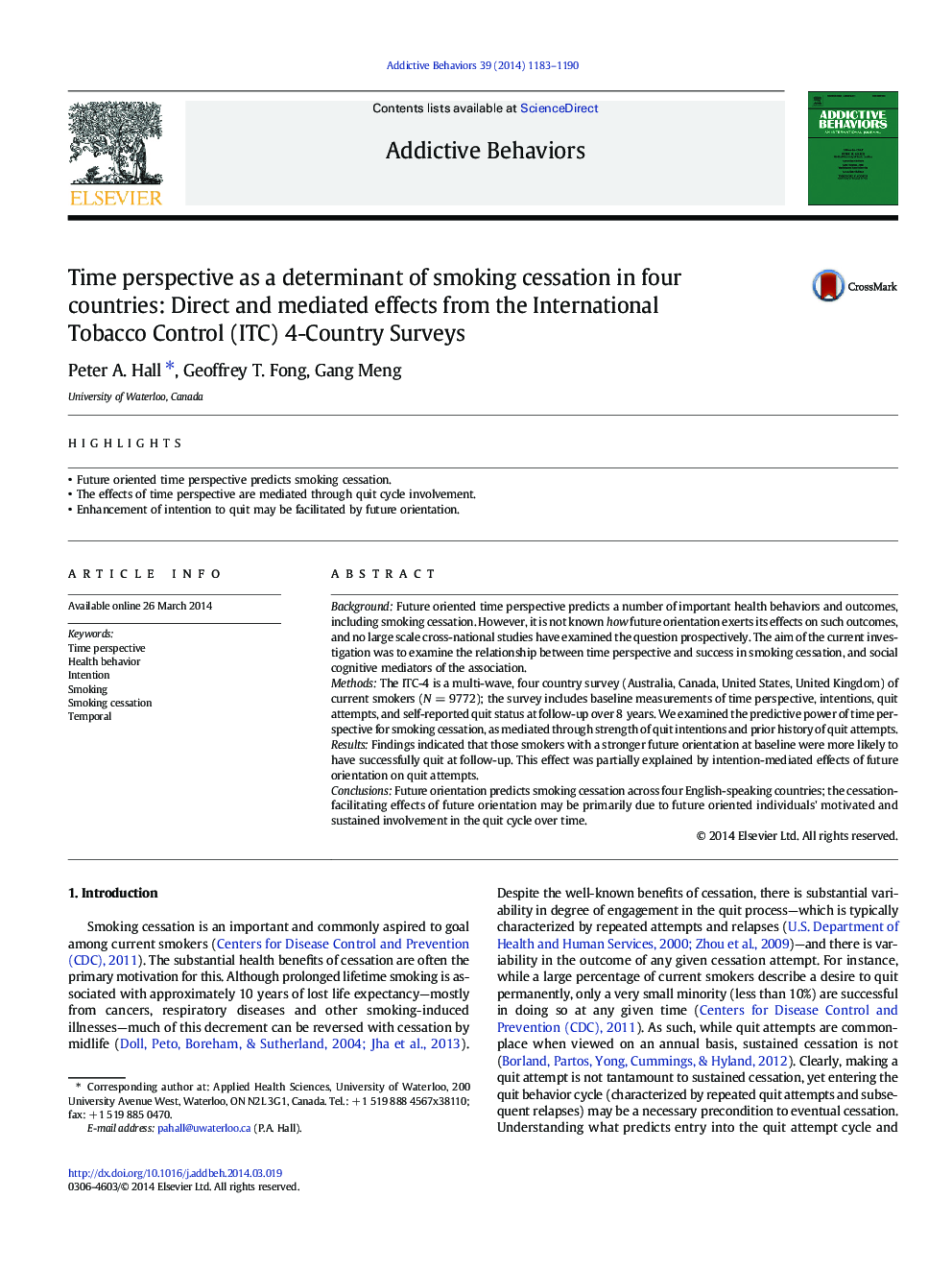| Article ID | Journal | Published Year | Pages | File Type |
|---|---|---|---|---|
| 898829 | Addictive Behaviors | 2014 | 8 Pages |
•Future oriented time perspective predicts smoking cessation.•The effects of time perspective are mediated through quit cycle involvement.•Enhancement of intention to quit may be facilitated by future orientation.
BackgroundFuture oriented time perspective predicts a number of important health behaviors and outcomes, including smoking cessation. However, it is not known how future orientation exerts its effects on such outcomes, and no large scale cross-national studies have examined the question prospectively. The aim of the current investigation was to examine the relationship between time perspective and success in smoking cessation, and social cognitive mediators of the association.MethodsThe ITC-4 is a multi-wave, four country survey (Australia, Canada, United States, United Kingdom) of current smokers (N = 9772); the survey includes baseline measurements of time perspective, intentions, quit attempts, and self-reported quit status at follow-up over 8 years. We examined the predictive power of time perspective for smoking cessation, as mediated through strength of quit intentions and prior history of quit attempts.ResultsFindings indicated that those smokers with a stronger future orientation at baseline were more likely to have successfully quit at follow-up. This effect was partially explained by intention-mediated effects of future orientation on quit attempts.ConclusionsFuture orientation predicts smoking cessation across four English-speaking countries; the cessation-facilitating effects of future orientation may be primarily due to future oriented individuals' motivated and sustained involvement in the quit cycle over time.
